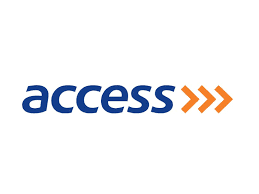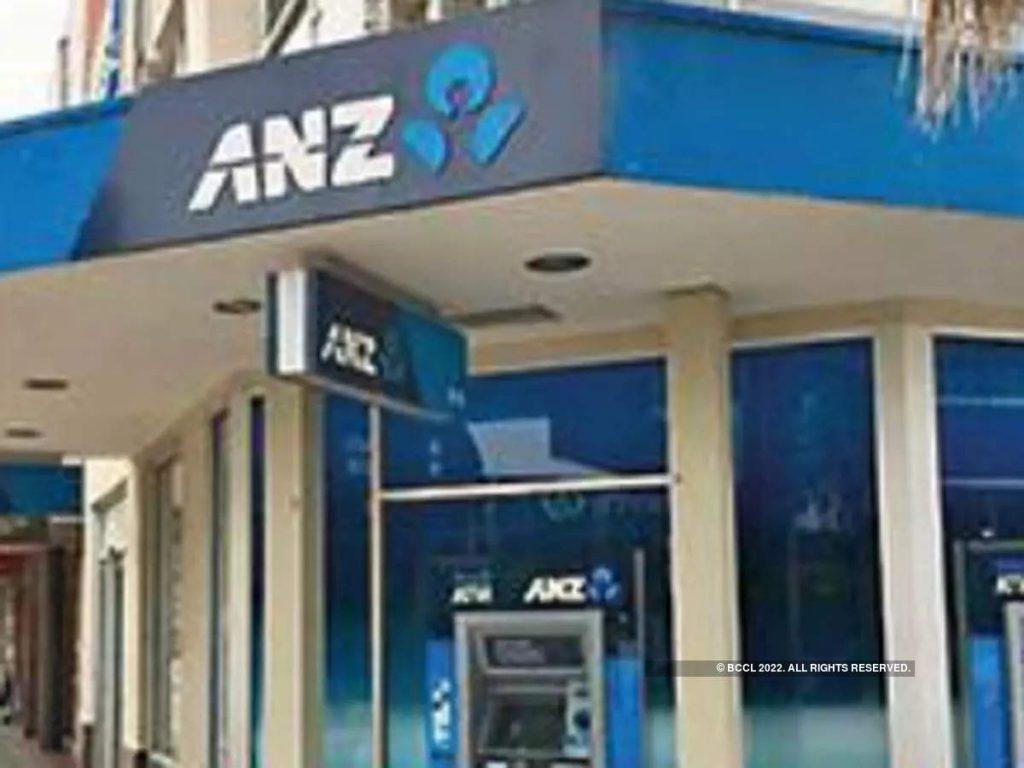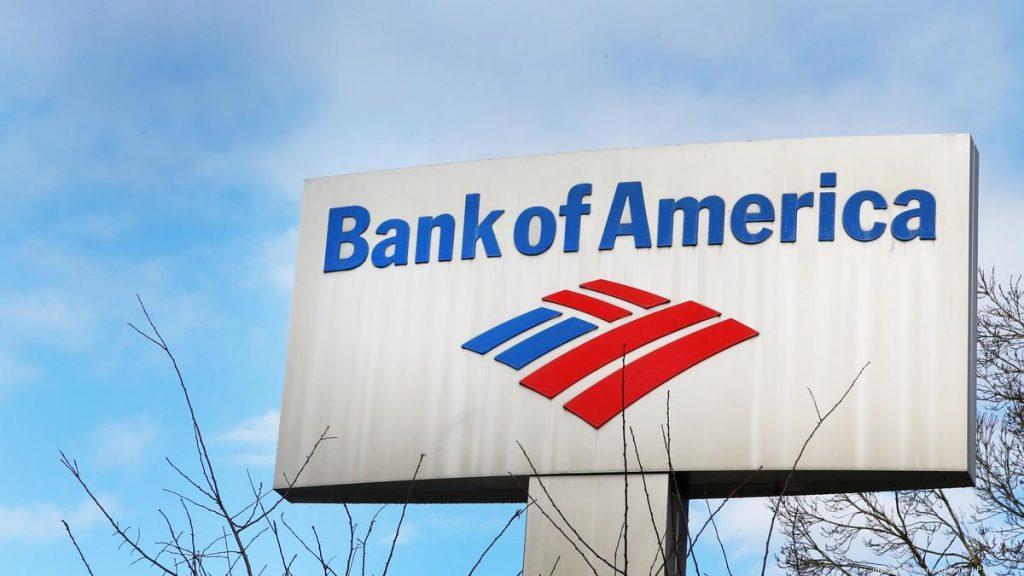Last Updated on July 1, 2024 by admin
As Nigeria’s unemployment rate continues to increase, there are more concerns on how to reduce it, create more job opportunities by the government so as to eradicate the poverty level in the country.
According to National Bureau of Statistics in the second quarter of 2020, unemployment has increased to 27.1 per cent from the 23.1 per cent recorded in Q3 2018 meaning 21,764,614 (21.7 million) Nigerians are unemployed.In today’s discussion, we are going to talk about how to start up a Point of Sale (POS) Business in Nigeria.
POS business is also profitable in Nigeria because a lot of remote places have no bank branches, so POS agents have become the de-facto banks.
And a POS agent or business doesn’t have to do any marketing as they’re in the public eye and customers will always come to them for the ease they provide.
On average a POS agent in Nigeria can make N7,000 to N10,000 daily depending on their location and how they’ve built trust with their customers especially those around them.
What is Point of Sale (POS)
A Point of Sale (POS) is the place where a customer makes a payment for goods or services. It is the final stage of a transaction between a business and a customer.
In its simplest form:
A POS can be a cash register where a cashier rings up your items and you pay with cash, card, or mobile wallet. However, modern POS systems are much more sophisticated.
Modern POS Systems:
They are a combination of hardware and software that not only process transactions but also offer a variety of features to help businesses manage their operations more efficiently. These features can include:
- Sales Tracking: Recording sales data, generating reports, and analyzing sales trends.
- Inventory Management: Tracking stock levels, automating reordering, and managing product variations.
- Customer Relationship Management (CRM): Storing customer information, tracking purchase history, and offering loyalty programs.
- Employee Management: Tracking employee hours, managing schedules, and calculating payroll.
- Payment Processing: Accepting various payment methods, including credit cards, debit cards, mobile payments, and gift cards.
- Reporting and Analytics: Generating detailed reports on sales, inventory, and customer behavior to help businesses make informed decisions.
Types of POS Systems:
- Terminal POS: Traditional countertop systems used in retail stores and restaurants.
- Mobile POS (mPOS): Portable systems that can be used on smartphones or tablets, ideal for businesses on the go or with limited space.
- Cloud-based POS: Software-based systems that run on the internet, offering flexibility and accessibility from anywhere with an internet connection.
Benefits of POS Systems:
- Improved efficiency and accuracy: Streamlines transactions, reduces human error, and speeds up checkout times.
- Enhanced customer experience: Offers a seamless payment process and personalized service.
- Better inventory management: Helps businesses track stock levels, reduce waste, and prevent stockouts.
- Valuable insights: Provides data and analytics to help businesses understand customer behavior and make informed decisions.
Overall, a POS system is a valuable tool for businesses of all sizes. By automating and streamlining various aspects of their operations, it can help businesses improve efficiency, increase sales, and enhance the customer experience.
What can you do with POS
POS (Point of Sale) business offers services like funds transfer and withdrawal, sales of airtime, bill payments like GOTV, DSTV, Startimes, PHCN, and other utility bills. It is used in several places where goods and services are sold/rendered; places like retail shops, offices, supermarkets, fuel/gas stations, pharmacies, eateries.
Also read: Keystone Bank Mobile transfer Code *7111#: How to transfer money
Steps to start up POS Business in Nigeria
Starting a POS (Point of Sale) business in Nigeria is a promising venture, especially with the growing demand for cashless transactions. Here are the essential steps to get you started:
-
Market Research and Business Planning:
- Identify your target market: Determine the specific areas or communities where you want to operate your POS business.
- Assess competition: Research existing POS agents in your chosen area and understand their pricing and services.
- Develop a business plan: Outline your business goals, target market, financial projections, marketing strategies, and operational procedures.
-
Choose a POS Provider:
- Research different providers: Compare the services, fees, commission structures, and support offered by various POS providers in Nigeria (e.g., OPay, Moniepoint, Kudi, Firstmonie).
- Select a provider that aligns with your business model: Consider factors like transaction fees, settlement periods, customer service, and technology offerings.
-
Registration and Licensing:
- Register your business name: Choose a unique and memorable name for your POS business and register it with the Corporate Affairs Commission (CAC).
- Obtain necessary licenses: Check with your local government or relevant authorities for any specific licenses or permits required to operate a POS business in your area.
-
Secure Capital:
- Estimate startup costs: Calculate the costs of acquiring POS terminals, renting a shop/kiosk, marketing, and initial operating expenses.
- Source funding: Secure the necessary capital through personal savings, loans, or partnerships.
-
Acquire POS Terminals:
- Purchase or lease: Depending on your chosen provider, you may be able to purchase or lease POS terminals.
- Install and set up: Ensure the terminals are properly installed and configured with the necessary software.
-
Choose a Suitable Location:
- High-traffic area: Select a location with good foot traffic and visibility, preferably near markets, residential areas, or commercial centers.
- Security: Ensure the location is safe and secure to protect your business and customers.
- Accessibility: Make sure the location is easily accessible for customers and has adequate parking space if needed.
-
Staff Recruitment and Training:
- Hire trustworthy and reliable staff: Conduct background checks and provide proper training on operating the POS terminals, handling cash, and customer service.
- Motivate your team: Incentivize your staff with commissions or bonuses to ensure their commitment to providing excellent service.
-
Marketing and Promotion:
- Create awareness: Utilize various marketing channels like social media, flyers, banners, and word-of-mouth to promote your POS business.
- Offer additional services: Consider offering additional services like bill payments, airtime recharge, or money transfers to attract more customers.
-
Operational Management:
- Maintain adequate cash flow: Ensure you have enough cash on hand to meet customer withdrawal demands.
- Keep accurate records: Maintain detailed records of all transactions, expenses, and revenues.
- Regular maintenance: Conduct regular maintenance of your POS terminals to prevent technical issues.
- Security measures: Implement security measures to protect your business from fraud and theft.
You can also read: Union Bank Transfer code *826#: how to register, transfer money, Buy recharge card and Cardless withrawals
How do you get Start Up fund for pos in nigeria
Getting startup funds for a POS (Point of Sale) business in Nigeria can be done through various channels. Here are some options you can explore:
-
Personal Savings:
- This is the most common and accessible source of funding for many small businesses. Dip into your personal savings or ask family and friends for contributions.
-
Microfinance Banks and Cooperative Societies:
- These institutions offer loans specifically tailored for small businesses with less stringent requirements than traditional banks.
-
Financial Technology (FinTech) Companies:
- Several FinTech companies like OPay, Kudi, Moniepoint, and PalmPay offer POS terminals and may provide startup capital or loans to agents.
-
Government Grants and Loans:
- The Nigerian government occasionally offers grants and loans through various initiatives to support small businesses and entrepreneurs. Keep an eye on announcements from the Bank of Industry (BOI) and other government agencies.
-
Angel Investors and Venture Capitalists:
- If your business model is innovative and scalable, you can pitch your idea to angel investors or venture capitalists for funding in exchange for equity.
-
Partner with Existing POS Agents:
- Partner with established POS agents who are looking to expand their network. They might provide you with a terminal and initial capital in exchange for a share of the profits.
-
Bank Loans:
- Traditional banks also offer small business loans, but they usually require collateral and a good credit history.
Location
Since this will be a physical business that will require lots of leg customers it’s important to get very suitable location . A suitable location will be a place that is densely populated. It should be a place where a lot of people stay and where there isn’t easy acess to banks or ATMs
How to Apply to become a POS Agent in Nigeria.
To become a POS agent in Nigeria, you can follow these general steps:
-
Choose a POS Provider:
- Research different POS providers like OPay, Moniepoint, Kudi, Firstmonie, PalmPay, TeamApt, etc.
- Compare their services, transaction fees, commission structures, and support.
- Select a provider that aligns with your business model and preferences.
-
Meet the Requirements:
- Typically, you’ll need the following:
- Valid means of identification (National ID card, International passport, Driver’s license)
- Bank Verification Number (BVN)
- An active bank account
- Proof of business registration (if applicable)
- Passport photographs
- Utility bill for proof of address
- Reference letter (some providers may require this)
- Typically, you’ll need the following:
-
Registration and Training:
- Visit the website or a physical office of your chosen POS provider.
- Fill out the application form and provide the required documents.
- Some providers may offer online registration.
- Attend any necessary training sessions on how to use the POS terminal and the provider’s platform.
-
Obtain Your POS Terminal:
- After successful registration and verification, you’ll receive a POS terminal, SIM card, and necessary software from your provider.
- Some providers may charge a one-time fee or require a deposit for the terminal.
-
Start Transactions:
- Set up your POS terminal in a secure and accessible location.
- Start offering services like cash withdrawals, deposits, transfers, bill payments, airtime recharge, etc.
-
Promote Your Services:
- Spread the word about your POS services within your community.
- Use flyers, posters, social media, or word-of-mouth marketing.
- Offer competitive rates and excellent customer service.
-
Earn Commissions:
- You’ll earn commissions on each transaction based on your agreement with the provider.
- The commission structure may vary depending on the service and transaction amount.
Specific Application Processes:
The specific application process may vary slightly between different POS providers. Here are a few examples:
- OPay: Download the OPay app and follow the instructions to become an agent.
- Moniepoint: Visit their website or contact their customer service for application details.
- Kudi: Visit their website or download the Kudi agent app to register.
- PalmPay: Download the PalmPartner app and follow the registration process.
By following these steps and choosing the right POS provider, you can start your own POS business in Nigeria and tap into the growing demand for financial services in the country.
How do you make a profit from Pos Agent in Nigeria?
POS agents in Nigeria generate profit through several income streams:
- Transaction Fees:
- Withdrawal fees: The primary source of income. You charge a fee for each withdrawal transaction, typically ranging from ₦100-₦300 or more, depending on the amount withdrawn and your location.
- Deposit fees: While less common, you can also charge a small fee for cash deposits.
- Transfer fees: Similar to withdrawals, you can earn a fee for facilitating money transfers between bank accounts.
- Bill payment fees: You can charge a fee for processing bill payments for utilities, cable TV, internet, etc.
- Value-Added Services (VAS):
- Airtime and data sales: Selling airtime and data bundles offers a convenient service for customers and generates commission for you.
- Cable TV subscription: You can earn commissions by facilitating cable TV subscription payments.
- Electricity bill payment: Similar to other bill payments, you earn a commission for processing electricity bills.
- Other services: Some POS agents offer additional services like mobile banking registration, insurance payments, and even microloans, further diversifying their income streams.
- Cashback and Discounts:
- Partner with businesses: Negotiate cashback offers or discounts with local businesses that customers can redeem when paying with your POS terminal. This attracts more customers and can generate additional revenue.
- Float Management:
- Optimize cash flow: Efficiently manage the cash in your possession by strategically investing in short-term, low-risk instruments or using it for other income-generating activities.
- Volume-Based Incentives:
- Some POS providers offer bonuses or rewards for reaching specific transaction targets. These incentives can boost your overall earnings.
Factors Affecting Profitability:
- Location: High-traffic areas with limited access to ATMs or bank branches are ideal.
- Competition: Lower transaction fees may attract more customers but reduce your profit margin per transaction. Find a balance.
- Service Quality: Offer excellent customer service, fast transaction processing, and reliable connectivity to build customer loyalty.
- Security: Prioritize security measures to protect your business and customers from fraud and theft.
By effectively managing these income streams and optimizing your operations, you can build a profitable POS agent business in Nigeria.
Benefits of POS business in Nigeria
The POS (Point of Sale) business in Nigeria is a rapidly growing industry with numerous benefits for both agents and customers:
Benefits for POS Agents:
- Lucrative Income Stream: POS agents earn commissions on various transactions like withdrawals, deposits, transfers, and bill payments. The more transactions they process, the higher their earnings.
- Additional Income from Value-Added Services: Selling airtime, data bundles, and other value-added services further boosts income potential.
- Low Startup Cost: Compared to other businesses, starting a POS business requires relatively low capital investment, making it accessible to many entrepreneurs.
- Flexibility: Agents can choose their operating hours and locations, offering flexibility and convenience.
- Job Creation: POS businesses create employment opportunities for agents and their staff, contributing to local economies.
- Financial Inclusion: POS agents bring financial services to underserved communities, empowering individuals without access to traditional banking.
Benefits for Customers:
- Convenience: Customers can easily access cash withdrawals, deposits, transfers, and bill payments without having to travel to distant bank branches.
- Financial Inclusion: POS services bridge the gap for the unbanked and underbanked population, providing access to basic financial services.
- Enhanced Security: POS transactions are often more secure than carrying large amounts of cash, reducing the risk of theft.
- Time-saving: Customers save valuable time by avoiding long queues at banks and ATMs.
- Multiple Services: POS agents often offer a range of services beyond basic transactions, like airtime purchases, bill payments, and even insurance services, all in one place.
Overall Benefits:
- Economic Growth: The POS industry contributes significantly to Nigeria’s economic growth by facilitating financial transactions and promoting financial inclusion.
- Technology Adoption: POS services drive the adoption of digital payments and contribute to a cashless economy.
- Employment Generation: The sector creates jobs for agents, their staff, and indirectly supports other businesses through increased economic activity.
However, it’s important to note that the POS business in Nigeria also faces challenges like network connectivity issues, fraud risks, and the need for adequate cash management. Despite these challenges, the benefits far outweigh the drawbacks, making it a promising venture for aspiring entrepreneurs.
List of POS Agent in Nigeria?
Nigeria has witnessed a surge in the number of POS (Point of Sale) agents in recent years, driven by the increasing demand for financial services in underserved areas and the push for a cashless economy. Several companies have emerged as major players in this space, offering POS terminals and agency banking services to individuals and businesses.
Here are some of the leading POS agents in Nigeria:
-
OPay: This Chinese-backed fintech company has the largest POS agent network in Nigeria, with over 500,000 agents across the country. OPay offers a wide range of financial services, including cash withdrawals, deposits, transfers, bill payments, airtime purchase, and more.
-
Moniepoint (formerly TeamApt): Moniepoint is another major player in the POS market, with a significant presence in Nigeria. It provides POS terminals and agency banking solutions to businesses and individuals, enabling them to offer financial services to their customers.
-
Kudi: Kudi is a popular POS agent network that focuses on empowering small businesses and individuals in rural and underserved areas. It offers easy-to-use POS terminals and a comprehensive suite of financial services.
-
PalmPay: PalmPay is a mobile payment platform that also offers POS services through its agent network. It provides a convenient way for customers to make payments and access financial services using their mobile phones.
-
Firstmonie: This is First Bank’s agent banking network, leveraging the bank’s extensive reach and infrastructure to provide POS services to customers across Nigeria. Firstmonie agents offer various financial services, including cash withdrawals, deposits, and bill payments.
In addition to these major players, there are several other POS agents operating in Nigeria, including Paga, Baxi, PayCentre, and many more. The competition in this market is intense, with each provider offering different features, pricing, and incentives to attract agents and customers.
Choosing the right POS agent depends on various factors, such as location, target market, transaction fees, commission structure, and the range of services offered. It’s essential to research and compare different providers to find the one that best suits your needs and business goals.
Pos Charges
1. GTbank charges a fee of 0.75% for each payment or service made with the POS.
2. Opay Initial charge per transaction is 0.6% and then 0.5% after upgrading to Preferred Opay Merchant status
3. Palmpay POS withdrawal charge is 0.5% on withdrawal transactions. For deposits, Palpay charges a fixed fee of N10 naira regardless of the amount being deposited
4. Moniepoint MFB : Withdrawal: 0.5% (₦1000 – ₦19900), 100 Naira Flat for (₦20K – ₦1,000, 000) AND Deposit: ₦12 Naira
POS Machine Price
There is no fixed price for POS terminals in Nigeria. The prices for POS machines in Nigeria can range from N45,000 to N65,000 to N75,000 and can get as high as N200,000 depending on the specifications of the POS machine.
Different POS terminals have different specs like 2G, 3G and 4G as well as other types of features.
The cost of a POS machine in Nigeria depends on the bank or company you want to be an agent of or you’re buying from.
How to Apply for POS Agent
To apply for a POS agent position in Nigeria, you will need to follow these general steps:
-
Choose a POS Provider:
- Research different POS providers like OPay, Moniepoint, Kudi, Firstmonie, PalmPay, etc.
- Compare their services, transaction fees, commission structures, and support.
- Select a provider that aligns with your business goals and preferences.
-
Meet the Requirements:
- Each provider may have specific requirements, but generally, you’ll need:
- A valid means of identification (National ID card, International passport, Driver’s license).
- Bank Verification Number (BVN).
- An active bank account.
- Proof of business registration with the Corporate Affairs Commission (CAC) is now mandatory as of May 2024.
- Passport photographs.
- Utility bill for proof of address.
- Reference letter (some providers may require this).
- A business plan (optional for sole proprietorships).
- Each provider may have specific requirements, but generally, you’ll need:
-
Registration and Training:
- Visit the website or a physical office of your chosen POS provider.
- Fill out the application form and provide the required documents.
- Some providers may offer online registration.
- Attend any necessary training sessions on how to use the POS terminal and the provider’s platform.
-
Obtain Your POS Terminal:
- After successful registration and verification, you’ll receive a POS terminal, SIM card, and necessary software from your provider.
- Some providers may charge a one-time fee or require a deposit for the terminal.
-
Start Transactions:
- Set up your POS terminal in a secure and accessible location.
- Start offering services like cash withdrawals, deposits, transfers, bill payments, airtime recharge, etc.
-
Promote Your Services:
- Spread the word about your POS services within your community.
- Use flyers, posters, social media, or word-of-mouth marketing.
- Offer competitive rates and excellent customer service.
Important Considerations:
- Registration with CAC: As of May 2024, it is mandatory to register your POS business with the Corporate Affairs Commission (CAC) to combat fraud and ensure accountability.
- Due Diligence: Choose a reputable POS provider with a good track record and reliable customer support.
- Location: Select a strategic location with high foot traffic and good security.
- Capital: Ensure you have enough capital to cover the initial costs of acquiring a POS terminal and other operational expenses.
- Customer Service: Provide excellent customer service to build trust and loyalty among your customers.
FAQS
Q1: What is a POS business?
A: A POS (Point of Sale) business in Nigeria involves providing financial services to customers through a mobile device or terminal. This includes cash withdrawals, deposits, transfers, bill payments, airtime recharge, and other value-added services.
Q2: What are the steps to start a POS business in Nigeria?
A: Here are the essential steps to start a POS business in Nigeria:
-
Market Research and Business Plan:
- Research your target market, assess competition, and develop a comprehensive business plan outlining your goals, strategies, and financial projections.
-
Choose a POS Provider:
- Compare different providers (OPay, Moniepoint, Kudi, etc.) based on their services, fees, commission structures, and technology offerings.
- Select a provider that aligns with your business model and preferences.
-
Registration and Licensing:
- Register your business name with the Corporate Affairs Commission (CAC).
- Obtain any necessary licenses or permits from local authorities.
-
Secure Capital:
- Estimate startup costs, including POS terminals, rent, marketing, and operating expenses.
- Source funding through personal savings, loans, or partnerships.
-
Acquire POS Terminals:
- Purchase or lease POS terminals from your chosen provider.
- Ensure proper installation and configuration with the necessary software.
-
Choose a Suitable Location:
- Select a high-traffic area with good visibility and security, preferably near markets, residential areas, or commercial centers.
- Ensure accessibility and adequate parking space if needed.
-
Staff Recruitment and Training:
- Hire trustworthy and reliable staff, conduct background checks, and provide thorough training on operating the POS terminals, handling cash, and customer service.
- Motivate your team with commissions or bonuses to ensure their commitment to providing excellent service.
-
Marketing and Promotion:
- Create awareness for your POS business through social media, flyers, banners, and word-of-mouth marketing.
- Offer competitive rates and additional services to attract more customers.
-
Operational Management:
- Maintain adequate cash flow to meet customer withdrawal demands.
- Keep meticulous records of all transactions, expenses, and revenues.
- Conduct regular maintenance of your POS terminals to prevent technical issues.
- Implement security measures to protect your business from fraud and theft.
Q3: How much does it cost to start a POS business in Nigeria?
A3: The startup cost can vary depending on various factors like the number of terminals, location, and marketing expenses. On average, you can expect to spend between N50,000 to N200,000 or more.
Q4: What are the potential risks and challenges of running a POS business?
A4: Some common challenges include:
- Network connectivity issues: Ensure a reliable internet connection for smooth transactions.
- Fraud and security risks: Implement robust security measures to protect against fraud.
- Cash management: Ensure adequate cash flow to meet customer demands.
- Competition: Differentiate your business through superior customer service and competitive pricing.
Q5: How profitable is a POS business in Nigeria?
A5: The profitability depends on various factors like location, transaction volume, fees charged, and operational costs. However, with a good location, effective management, and excellent service, POS agents can earn a decent income.
Q6: Do I need any specific license to operate a POS business?
A6: As of May 2024, it is mandatory to register your POS business with the Corporate Affairs Commission (CAC). You may also need to obtain permits from your local government or financial authorities.




















